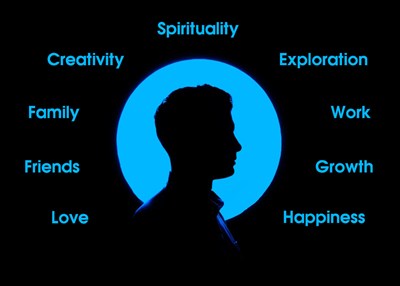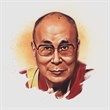A Pragmatic View
Pragmatic, Practical Day to Day, Common Sense, Everyday Viewpoint
 ConscioCentrism, at its heart, represents a profound re-thinking of our world view - however, as you read through the principles and concepts, you should find that its actually a very pragmatic viewpoint that frames our lives and the universe in a new and interesting light - and not so different from existing perspectives of the universe.
ConscioCentrism, at its heart, represents a profound re-thinking of our world view - however, as you read through the principles and concepts, you should find that its actually a very pragmatic viewpoint that frames our lives and the universe in a new and interesting light - and not so different from existing perspectives of the universe.
The core of ConscioCentrism is recognizing that consciousness is not something external from matter, or something that magically appears at some point in life, but rather consciousness is the foundation that 3D matter, 4D time and 5D consensual will unfold from. The fundamental and lowest level concept is that the meaning of consciousness is to create. The meaning of creation is to separate and re-unify elements into new forms. Our individual pockets of consciousness (our human vessels), and their sub-conscious system (organs) have evolved over trillions of iterations of separation and reunification, with the goal to continue the "act of creation" and to expand local control over matter and our local spheres of consciousness.
The idea of Separation vs Unity is one that at first may seem abstract, but the more you consider it, the more profound it becomes. From the Big Bang to the formation of solar systems, to the evolution of life, to tool creation, to modern day life, the act of separation and reunification is the fundamental concept that everything has been based on. It is the core cycle of the game of consciousness.
From Birth to Adulthood - A Balance of Separation and Unity
In our everyday lives, we start out from an act of creation - the separation of male sperm and unification with female egg, through a series of divisions and unifications in the womb to create the complex vessels of the human body. Once born, we are separated from the mother when the umbilical cord is cut.
Our first year is one of understanding and coming to terms with that separation. Our instinct as babies is to want to be reunited with mother. As we become toddlers, we start exploring separation and individual control over matter, intermixed with intense urges to then be reunited with mother/father.
 Through childhood, children vastly expand their separatist impulses, pushing the limits of what they are allowed to do, and how they are allowed to control their material environments. They learn communication, which is a way for consciousness to exchange concepts and ideas, and to indirectly control other beings through those ideas. Kids learn how to use communication to control and manipulate, as well as how to use communication to connect and unite with their family and friends.
Through childhood, children vastly expand their separatist impulses, pushing the limits of what they are allowed to do, and how they are allowed to control their material environments. They learn communication, which is a way for consciousness to exchange concepts and ideas, and to indirectly control other beings through those ideas. Kids learn how to use communication to control and manipulate, as well as how to use communication to connect and unite with their family and friends.
As we reach puberty, the strong urge to procreate starts to set in, which is consciousness (and sub conscious pockets of consciousness within our complex vessels) telling us that its time to perform the greatest act of creation - sex - where we literally divide and separate sperm and eggs to unite and create a new vessel for a next generation.
Through our teens and twenties we further explore separatism and division from our families and friends. We learn the urges to "be unique" / "be talented" / "create something". This urge for uniqueness is the conscious urge of division and separation at work. Without it, our lives lack meaning. On the other side of the coin, when we take separatism and individuality too far, we feel the strong urge to re-unite with others. We feel the urge to find a romantic partner, to connect with and hang out with friends, and to spend time with our families. This balance between separation and unity is a core principle that guides our lives. When the balance is off, we don't feel happy. When we don't create something or participate in the act of creation (separation and unity), we feel unhappy.
Separation Versus Unity on the Societal Level
On a societal level, most of our socio-economic and political choices come down to a balance between separation and unity. At a fundamental level, capitalism is a socio-economic model that favors separatism and individuality. Socialism is a system that favors unity and equity over individualism. When we balance the two sides, we create a system that both entices individual participation with rewards while still provides limits to the individualism and makes sure there is equality and healthy unity in the system.
Separation Versus Unity on the Political Level
On a political ideal level, you can view ideals on a policy by policy basis for where the fall on the balance of power of separation vs unity. In general, Democratic policies favor putting the unity of the environment and society above the individual. In general, Republican or Libertarian policies put individual freedom and individual control over the good of the unity. Neither side is necessarily "the right way". Rather, we need to realize that a balance between separation and unity is what we need. These are not black-and-white issues, they are shades of gray.
To move society and the planet forward in a healthy fashion, we need to find the correct balance between separation (individual incentives and freedoms) and unity (societal, economic and ecological balance). We should vote for politicians who recognize this need for balance -- and reject politicians who see things as black-and-white, and want to push their country to extremes.
 Dalai Lama Tenzin GyatsoDalai Lama, Spiritual Teacher
Dalai Lama Tenzin GyatsoDalai Lama, Spiritual Teacher "As individuals we can influence our own families. Our families can influence our communities and our communities can influence our nations."
 Suzanne SimardEcological Scientist and Professor
Suzanne SimardEcological Scientist and Professor "An old-growth forest is neither an assemblage of stoic organisms tolerating one another’s presence nor a merciless battle royale: It’s a vast, ancient and intricate society. There is conflict in a forest, but there is also negotiation, reciprocity and perhaps even selflessness. The trees, understory plants, fungi and microbes in a forest are so thoroughly connected, communicative and codependent that some scientists have described them as superorganisms."
 Brian GreenePhysicist, Mathematician, String Theorist, Author
Brian GreenePhysicist, Mathematician, String Theorist, Author "As we have seen, humans prevailed in no small part because our species has the capacity to pool brain and brawn, to live and work in groups, to divvy up responsibilities and effectively meet the needs of the collective. The greater social cohesion of those in a religiously bound group would have made them a more formidable force in the ancestral world, and according to this line of argument, securing an adaptive role for religious affiliation."
 Yuval Noah HarariHistorian, Professor, Author
Yuval Noah HarariHistorian, Professor, Author "Sapiens rule the world because only they can weave an intersubjective web of meaning: a web of laws, forces, entities and places that exist purely in their common imagination. This web allows humans alone to organise crusades, socialist revolutions and human rights movements."